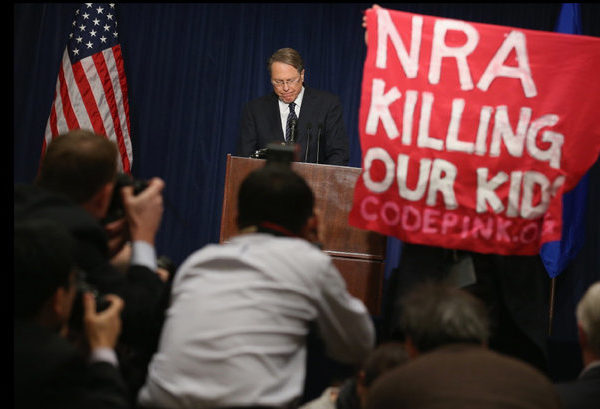Thomas A. James
Thomas A. James is Assistant Professor of Theology at Union Presbyterian Seminary in Richmond, Virginia.Essays

We are in the middle of a trial of strength between two populations of political actors: guns and children. And children are vastly more powerful. We don’t have to idealize them to recognize that they are far more important as political partners than are our guns. And, if neo-liberals do idealize them, so much the better. I don’t know if the kingdom is ever going to come, but I do know that one way to move toward it is to play idolatries against each other, mitigating the worst features of one by means of appeal to another, rather like alcoholism is sometimes overcome by nurturing substitute addictions.

In the cover story of the August 6 edition of Time magazine, Joe Klein offers a rather grim account of the U.S. national conversation about guns in the wake of recent mass shootings. He writes about the ways in which the political climate, increasingly and rather bizarrely governed by the gun lobby, has made it impossible to have any serious political dialogue about the regulation of guns and ammunition. The article is provocatively entitled, “How Guns Won.” It is clear to me from reading the piece, however, that Mr. Klein wants to stay far from actually attributing victory to guns themselves. Rather, he wants to maintain the more commonsense view that it is those political actors that value gun-owning, certainly backed by the gun industry but also fiercely devoted to libertarian ideals, that have won decisive victories. However, I think we could take Mr. Klein’s title quite literally and say that guns themselves have essentially won what Bruno Latour might call a “trial of strength” in which they had been engaged with their critics….

We face a seductive fantasy of independence from a wider, dynamic order of things, with the result that our response to challenges in international relations or ecological crisis have been rather consistently out of touch. But of course this is far from simply an American problem. I suggest that it stems from a disease of the modern subject, a way of looking at the world that treats “its” objects as inert and easily manipulated. In other words, this is a deeply-rooted metaphysical problem, a constitutional failure to account for the capacity of objects in the world to push back…..
How can creativity, with its wild, aimless fecundity, not overwhelm us, turning us into mere occasions for, or perhaps ciphers of, a cosmic Process which rolls on eternally, producing no true events but only simulacra of itself?
While I would not want to deny the political importance of forms, I would add to this analysis the importance of the kinds of spirit or inner drive (desire) which may be astir in them. An essential part of the explanation for the enormity of 9/11 is that the terrorist network responsible for them was not animated by a drive to produce new configurations of value and meaning so much as by a reactionary desire to bring judgment upon forces of modernity which were perceived to be a threat to established (traditional religious) values. The animating spirit of terrorist networks is a spirit of ressentiment.